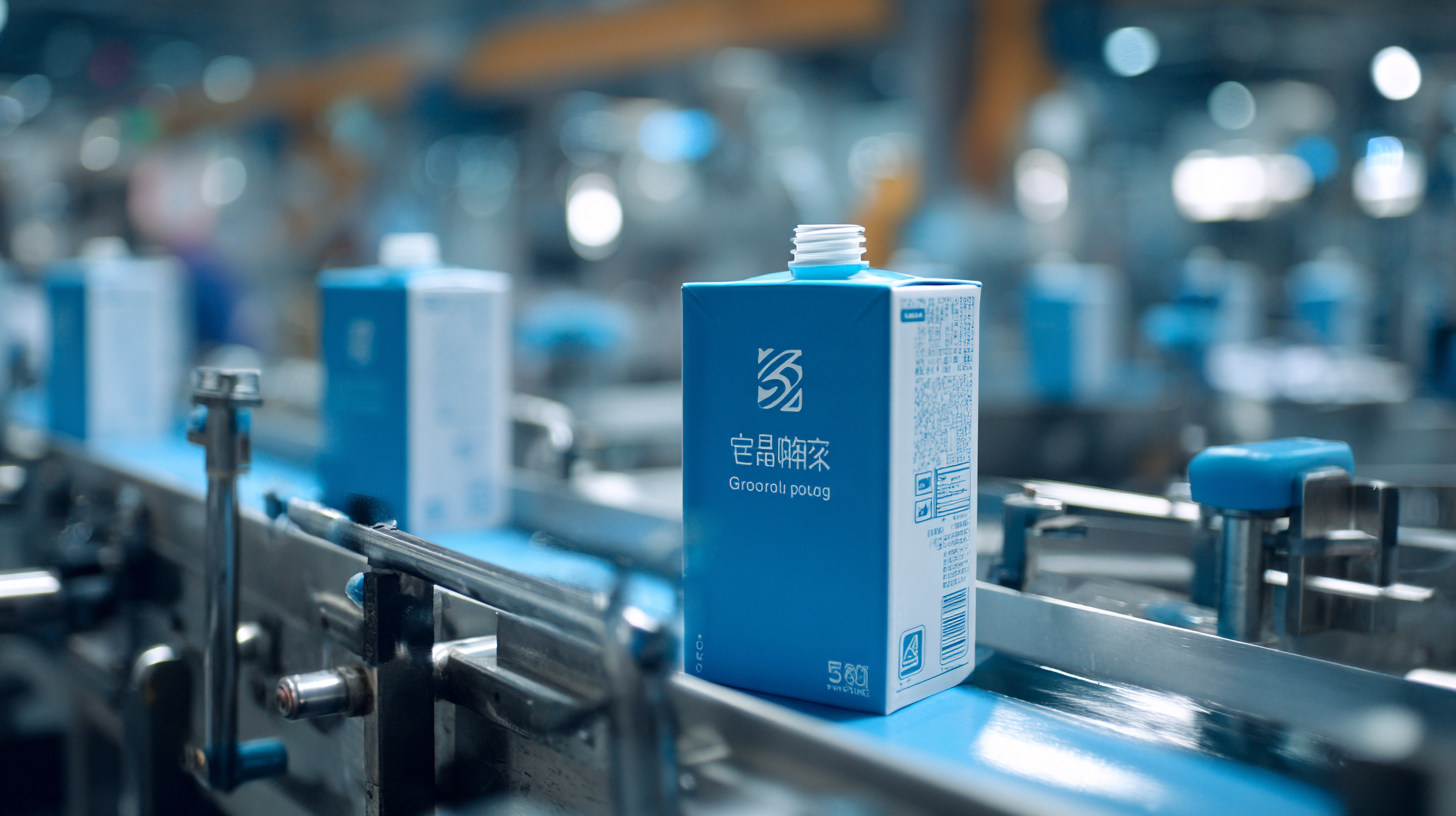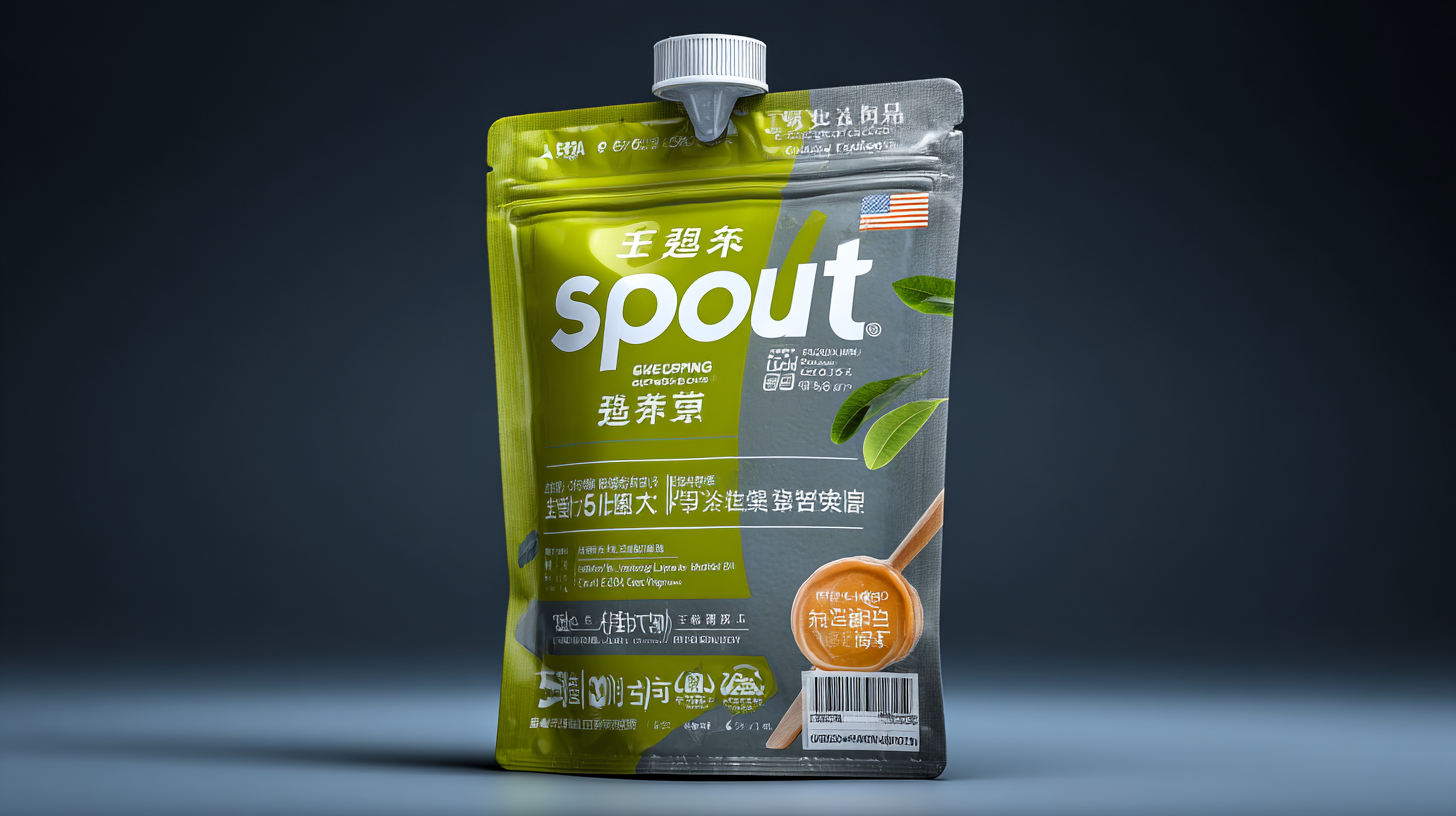- Phone:+86 15218629499
- Phone: +86 15766990063
- E-mail: Yzprinting01@163.com
In recent years, the global packaging industry has witnessed a significant shift towards flexible packaging solutions, with the spout pouch emerging as a popular choice due to its convenience and versatility. According to a report by MarketsandMarkets, the spout pouch market is projected to grow at a CAGR of 6.7% from 2020 to 2025, driven by increasing demand in sectors such as food and beverage, personal care, and household products. Chinese manufacturers have played a crucial role in this transformation, exemplifying excellence in both innovation and quality.

With their ability to produce high-quality spout pouches that meet international standards, they have garnered global respect and market share, reinforcing the notion that "Made in China" can indeed symbolize quality and reliability. This blog will delve into the leading Chinese manufacturers that are setting benchmarks in spout pouch production, showcasing their contributions to a rapidly evolving industry.
The spout pouch manufacturing industry has seen remarkable growth globally, with Chinese companies leading the charge in both innovation and production efficiency. Chinese manufacturers have honed their skills in utilizing advanced machinery and eco-friendly materials, setting a benchmark for quality that is influencing markets worldwide. Their innovative designs not only enhance functionality but also cater to the growing consumer demand for sustainable packaging solutions.

Tip: When selecting a spout pouch manufacturer, consider their commitment to sustainable practices. Look for companies that use recyclable materials and have initiatives aimed at reducing their carbon footprint.
Additionally, Chinese manufacturers are not just focused on the domestic market; they are expanding their horizons by exporting high-quality spout pouches to various countries. This global reach allows them to adapt to diverse consumer preferences and regulatory standards, making them incredibly versatile. Their agility and responsiveness to market trends are key advantages that other manufacturers are trying to replicate.
Tip: Always prioritize manufacturers who provide customizable solutions, as these can significantly enhance your brand’s packaging appeal and product differentiation in a competitive market.
The spout pouch manufacturing industry is undergoing a radical transformation, driven by key technology trends that are set to redefine production by 2025. According to a report from MarketsandMarkets, the global spout pouch market is expected to grow from $25.22 billion in 2021 to $37.87 billion by 2025, reflecting a compound annual growth rate (CAGR) of 9.1%. This surge is attributed to the rising demand for convenient and sustainable packaging solutions across various sectors, including food and beverage, personal care, and household products.
One of the prominent trends shaping spout pouch production is the advancement in materials technology. Innovations in barrier films and biodegradable materials are enhancing the shelf life and environmental performance of pouches. A study by Smithers Pira highlights that the market for biodegradable packaging is forecasted to grow with a CAGR of 14% between 2020 and 2026. Additionally, automation and smart manufacturing technologies are being integrated into production lines, boosting efficiency and reducing waste. For instance, the introduction of Industry 4.0 principles allows for real-time monitoring and predictive maintenance, which can reduce production downtimes by up to 20%, as reported by Deloitte.
Furthermore, customization and design flexibility are becoming essential in meeting consumer preferences. Many manufacturers are now leveraging digital printing technologies that allow for shorter runs and quicker turnaround times, catering to personalized branding and packaging needs. With these technological advancements, spout pouch manufacturers are not only enhancing product quality but also improving their competitive edge in the global marketplace.
This chart depicts the projected impact levels of key technology trends shaping the spout pouch manufacturing industry by 2025. The levels are rated on a scale from 1 to 10, indicating their anticipated significance in production processes, sustainability efforts, and consumer demands.
In recent years, Chinese manufacturers have taken a leading role in the spout pouch industry, not only through innovative designs and efficient production processes but also by adopting sustainability and eco-friendly practices. According to the "Global Flexible Packaging Market Report 2022," the demand for sustainable packaging solutions is projected to grow by 5.2% annually, reflecting a significant shift toward environmental responsibility. Chinese companies are at the forefront of this movement, incorporating recycled materials and optimizing manufacturing processes to reduce waste and carbon footprints.
One notable initiative is the adoption of bio-based materials in spout pouch production. A report by Smithers indicates that the global market for bioplastics is expected to reach $44 billion by 2025, demonstrating the increasing consumer preference for sustainable packaging. Chinese spout pouch manufacturers are responding to this trend by investing in research and development to create high-performance, eco-friendly alternatives. Additionally, many factories have implemented energy-efficient technologies and waste management practices that align with international sustainability standards, showcasing a commitment to not only meet but exceed global benchmarks in eco-friendly production.
In recent years, the spout pouch manufacturing industry has witnessed remarkable advancements driven by collaborative efforts among global leaders. Companies such as Amcor, Mondi, and Berry Global are at the forefront of innovation, not only enhancing product functionality but also focusing on sustainability.
According to a recent report by Smithers Pira, the global market for spout pouches is projected to reach $3.2 billion by 2025, with a compound annual growth rate (CAGR) of 7.5%. This surge is largely attributed to the rising demand for convenience packaging in food and beverage sectors.
The collaboration between these industry giants has led to the development of new technologies that improve production efficiency and reduce environmental impact. For instance, Amcor's partnership with local manufacturers in China has resulted in the creation of recyclable spout pouches, which address growing consumer preferences for sustainable packaging solutions. Furthermore, as per a report by Freedonia Group, spout pouches are expected to account for over 15% of the flexible packaging market, showcasing a shift towards more eco-friendly options. This strategic alliance among global leaders not only exemplifies Chinese excellence in manufacturing but also sets a benchmark for innovation in the flexible packaging industry.
The spout pouch packaging market is anticipated to see significant growth in the coming years, with a projected compound annual growth rate (CAGR) of 5.3% from 2025 to 2030, according to a recent report by MarketsandMarkets. This surge in demand is largely driven by the rising preference for convenient and lightweight packaging in the food and beverage, personal care, and household product sectors. As consumers increasingly seek sustainable packaging options, the spout pouch's recyclability and ease of use position it favorably against rigid packaging alternatives.

In addition, the market for spout pouches is expanding in emerging economies, particularly in Asia-Pacific regions, where urbanization and changing consumer lifestyles are propelling demand. A study from Grand View Research highlights that Asia-Pacific is expected to account for nearly 40% of global spout pouch consumption by 2025. This trend presents a plethora of opportunities for manufacturers to innovate and adapt their production techniques, catering to the growing needs for eco-friendly materials and complex designs tailored for specific product applications. As companies focus on R&D and strategic partnerships, the industry is set to embody a new era of packaging solutions geared towards sustainability and consumer convenience.
